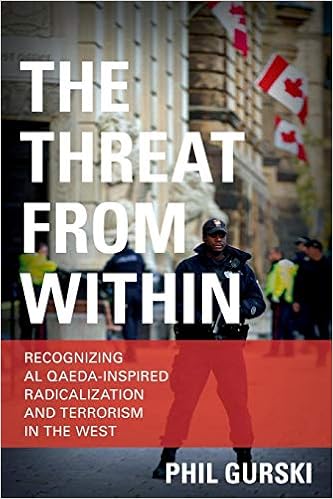The Enemy Within: How a Member of French Intelligence Turned to Terror: Mickaël Harpon’s drift toward fundamentalist Islam went undetected even though he worked in unit that tracked Islamist radicals.
Normally I see French security intelligence agencies as fairly competent. I had the pleasure of meeting with members of the two largest agencies – the DST and the DGSE, or whatever they are called now – when I was at CSIS and I found them on the ball, especially when it comes to Islamist terrorism. And it is a good thing that they are since they have identified almost 20,000 people worth keeping an eye on for such proclivities (this number dates from February 2018: who knows how big it is now?).
Despite their professional capabilities successful attacks do take place. There are far too many to list but I think the 2015 Bataclan massacre and the Charlie Hebdo shootings earlier that same year will give you some idea of what I am writing about. French authorities have their hands full and there is no way any agency can keep tabs on 20,000+ individuals. Some plots will succeed no matter how large the effort to stop them.
But what if the threat seems to have been obvious and came from ‘within’?
This is certainly what appears to have happened recently as a week ago when a police officer knifed four colleagues to death before being killed by other officers. Mickael Harpon, a ten-year IT veteran, carried out the attacks in what was first dismissed as a workplace dispute: Mr. Harpon was deaf and was allegedly upset at his lack of advancement.
Angry Employee
Yet it turns out that this was much more than an angry employee. It now seems clear that the attacker was radicalised and in effect an Islamist terrorist. And it appears that there were many ‘warning signs’ that were ignored. To wit:
- He had converted to Islam in 2008 (NB this means nothing unless accompanied by other more disturbing events);
- He had praised the Charlie Hebdo attacks, saying “serves them right” (for satirising Islam);
- He had amassed jihadi propaganda;
- He refused to shake women’s hands (NB this is not exclusively tied to jihadis but also prevalent among many conservative Muslims);
- He frequented a mosque whose preacher had almost been deported for unspecified ‘views’ (likely extreme).
All these elements were there and none were followed up on. An internal police probe was dropped. An opportunity to identify a potential terrorist was missed. Four people are dead as a result.
Blaming the police?
I am not trying to lay all the blame at the feet of the police: in the end Mr. Harpon is solely responsible for those deaths. I am also not trying to suggest that there is any foolproof method of predicting who will become a terrorist and when (even if I did pen an entire book on the subject and many of the elements listed above are discussed in that book).
You see, the problem with ‘profiling’ is that when you cast that net you haul in a lot of false positives and fail to catch the false negatives. Too many of the former and you are accused of ‘stigmatising’ at a minimum and racism in the worst case. Failing to identify possible threats and you find yourself burying four fellow officers.
I do not know if some kind of ‘political correctness’ was at play here. I do not know whether that particular police office was looking at other, higher priorities at the time. I do not know if anything else could have been done to prevent this attack. After all hindsight is 20-20.
In the end we are witness to another terrorist attack in the West. What matters is that we have four grieving families. They need the care of the French government and its people and deserve to be remembered for their service to their country.

